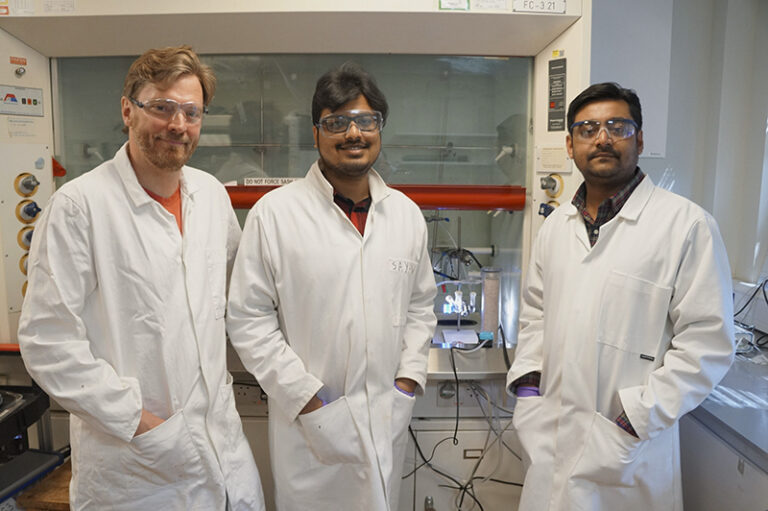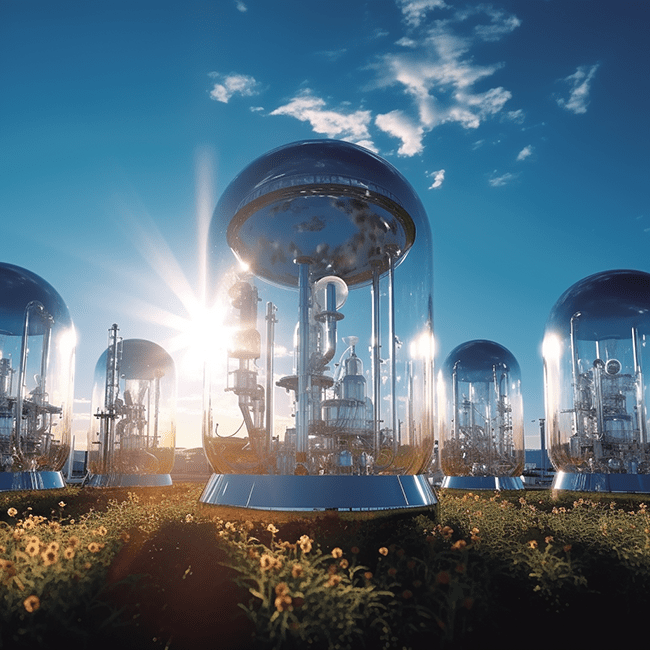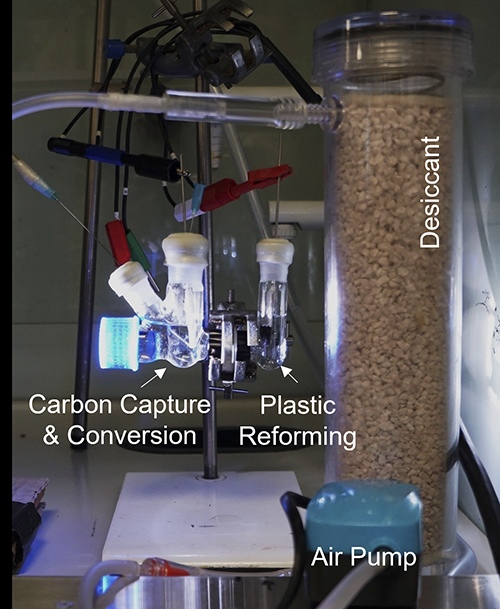
Harnessing the Power of Sunlight: Transforming Carbon Dioxide and Plastic Waste into Renewable Fuels and Useful Chemicals
In a ground-breaking development, a team of researchers led by Dr. Erwin Reisner from the Yusuf Hamied Department of Chemistry at the University of Cambridge has unveiled a new, sustainable pathway to renewable fuels and valuable chemicals. In a study published in the Joule Journal, the researchers demonstrated how they have managed to harness solar energy to transform carbon dioxide (CO2) and plastic waste into clean, renewable fuels.

A Revolutionary Approach to Carbon Capture and Fuel Production
The team’s approach hinges on a proprietary solar-powered reactor and involves two key steps. Firstly, air is bubbled through a solution, trapping and concentrating atmospheric CO2. Then, using an in-house modified solar absorber, the trapped CO2 is converted into fuels. Impressively, this process is optimized by the inclusion of pretreated waste Polyethylene Terephthalate (PET) plastics in the system, which themselves are converted into glycolic acid, a substance widely used in the cosmetics industry.
This new technology presents a marked advancement over previous solar CO2-to-fuel technologies, which required expensive, concentrated CO2. Instead, the Cambridge team’s reactor can directly convert CO2 from the air, using only sunlight and plastic waste, to produce fuels.
Turning Plastic Waste into Useful Chemicals
In addition to fuel production, the researchers have also found a way to simultaneously transform plastic waste into beneficial chemicals. The process involves powderizing a commercial PET sparkling water bottle, soaking it in a hydroxide solution for five days, and then incorporating the resulting solution into their reactor to produce glycolic acid.
This not only provides a viable means of dealing with PET waste, but it also effectively adds value to what was once waste material. By converting discarded plastics into ‘platform chemicals’, which are usually derived from fossil fuels, the team has found a way to recycle them back into the economy.
Selective Carbon Capture
The key to the process is the use of an alkaline solution that has a selective affinity towards CO2. When a gas stream containing CO2 is passed through the solution, CO2 is chemically trapped, whereas other gases, such as Nitrogen and Oxygen, pass through without reacting. This allows the process to be effective even with very dilute CO2 concentrations, such as those found in the air.

Challenges and Future Plans
However, scaling up this technology to an industrial level does present its own challenges, namely, increasing the efficiency, stability, and durability of the system. Dr. Reisner and his team are diligently working on these issues, exploring various optimizations to enhance the process’s efficiency.
A Step Towards a De-Fossilized Economy
The overarching aim of the project is to contribute to the “de-fossilization” of the economy – a concept that refers to an economy not reliant on fossil fuels for its energy needs. By using atmospheric CO2, plastic waste, and sunlight, the research offers an innovative method of fuel production that avoids the use of fossil fuels.
A Promising Future
The potential of this technology in combatting climate change and managing plastic waste is enormous, albeit still in the proof-of-concept stage. However, with future improvements in efficiency, stability, and durability, large-scale deployment of this technology could be seen in the coming decades. This innovative method of producing solar-driven fuel from industrially captured CO2 and repurposing plastic waste presents a promising alternative to conventional carbon capture and storage (CCS) methods and helps manage the growing global plastic waste problem.
In conclusion, while still in its early stages, this transformative technology developed by Dr. Reisner and his team provides an exciting glimpse into a more sustainable, de-fossilized future – where the bountiful power of the sun, the unavoidable waste of our daily lives, and the prevalent CO2 in our atmosphere work in harmony to produce clean, renewable fuels.